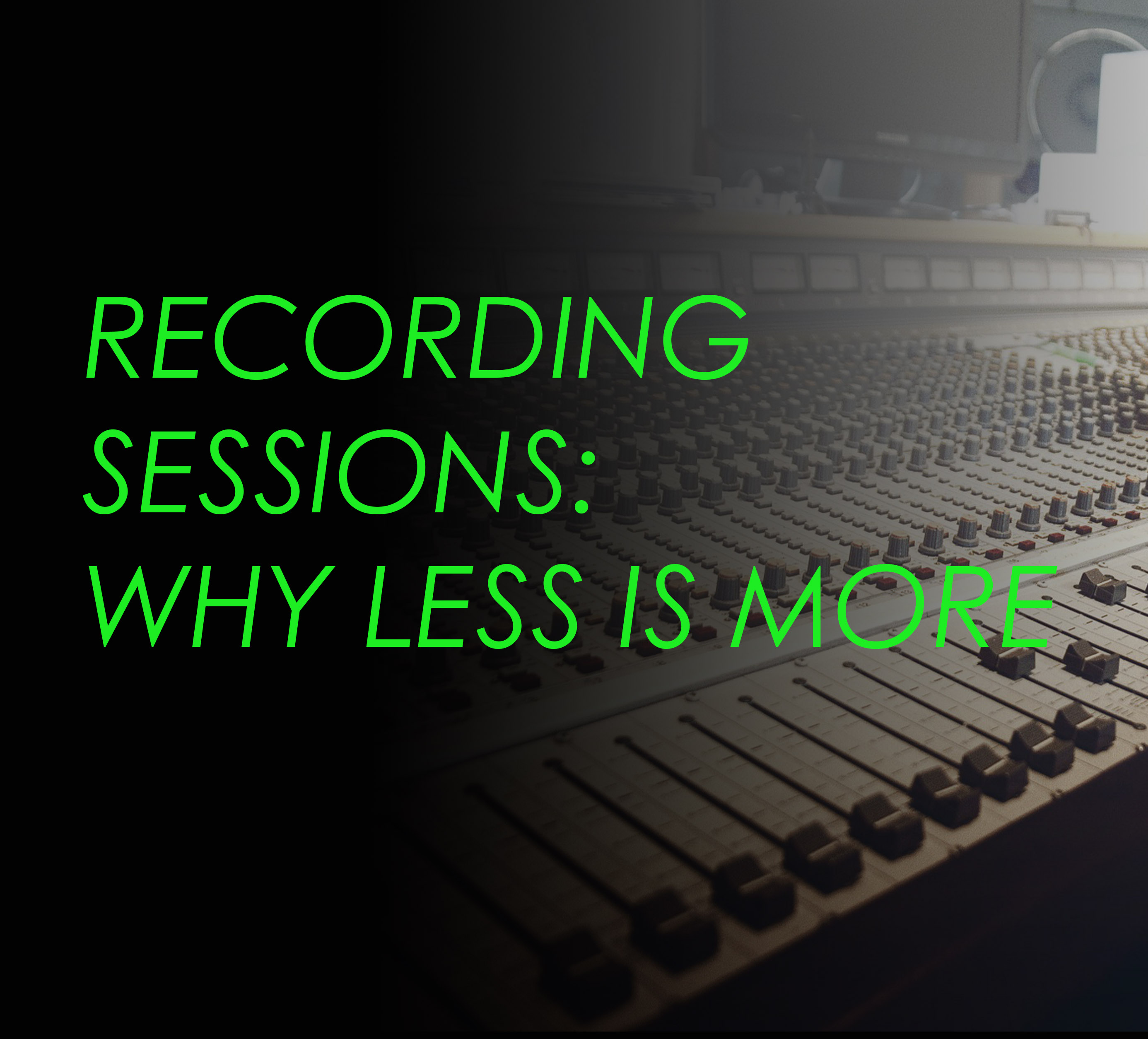The trend with modern reording sessions and music productions has been to record countless tracks, resulting in a session of upwards of 150-200 individual audio tracks! Today, I would like to tell you a few reasons why you should consider recording less tracks and some of the benefits you will gain from this approach.
Back in the days of solely analog recording, there were limitations due to the number of tracks available on original recording consoles. Dating back to mono recordings which then progressed to multi-tracks of 4, 8, 16, 24, 48 channels and so on. We have arrived at a point now whereby we have unlimited tracks available via modern digital audio workstations. The following are some points to highlight why less can most certainly be more during recording:
TIME
Whether you have hired out a professional studio facility or recording from home on your laptop, efficiency of your time becomes one of the most critical factors in achieving your music production goals. The more time you spend on the intricacies of a recording session and layering multiple tracks (in many cases unnecessary tracks) the less time you will have to be creative and also to stay inspired. This is quite often how recording artists end up with hundreds (sometimes thousands) of incomplete recordings, due to the extended amount of time spent which then takes the shine off the initial inspiration and leaves the artist often feeling demotivated. Time is also money when you’re in a professional recording facility! The more decisive you can be during pre-production, the more efficient you’re project will be. In order to compete with the modern music industry and release music more frequently, you need to manage your time very carefully.
COMPLEXITY
Recording large numbers of individual instruments/vocals etc, creates an unnecessarily complex production session. The complexity you create at the recording phase, arguably the more complex the subsequent stages of the production become. For example, if you choose to hire a mix engineer, they will also need to gain an in depth knowledge of your complex session. If you make it to the mastering phase, it’s highly likely the complexity will transfer to that stage also. You can even refine your recording process at the track level to reduce the complexity. For example, do you really need 6 microphones on that guitar cab? Does your vocalist really need 4 microphones in front of them? Can you achieve a similar result without the use of a complicated array of pre-amps, compressors and equalizers in the recording chain? These are all methods to improve your efficiency and keep things lean and mean!
FREQUENCY SPACE
One of the biggest technical challenges of sonically dense recordings, is the prevalence of frequency masking and continual phase issues. As you only have a certain amount of the entire frequency domain to use, it’s critical to ensure each individual track has it’s own optimum audio space to operate in. For example, if you have 5 separate kick drums that all operate around the 50hz area, you are going to have great difficulty in balancing and finding sonic space for them. You then run the risk of overloading your mix buss, which makes the resultant recording sound small and often distorted. There are a number of highly successful commercial artists that swear by a simplistic approach to recording. A great example is Pharrell who had a worldwide smash hit with his song “Happy”. This production was achieved with, by today’s standards, a reasonably uncomplicated session of some percussive instruments and vocals and not much more.
LESS PROBLEMS
The final point (and most straightforward one) is that the less tracks you record within your session, the less problems you will potentially create for yourself! I must say, I’m not suggesting you should completely disregard the concept of large recording sessions, because there is a time and a place for high track counts (think classical music and movie post production sessions). The most important thing during pre-production is to have a good think about what you’re aiming to achieve with your production and how you can best achieve the result by being as efficient as possible. One of my favourite quotes is from the late, great Tom Petty. He said some years ago (I think during the 70’s or 80s’) that “if you can’t do it in 16, you can’t do it at all!”. What he meant, was that if you couldn’t complete your recording within the available 16 tracks on a recording console at the time, you couldn’t do it at all! Certainly food for thought for our modern productions! I think in many cases, we are like kids in a candy store; unlimited options in our DAW’s! Sometimes, that may not always be a good thing. So, have a good think about what works best for you and I’m certain your productions will be much better for it!
Happy recording!
Until next time,
Mike





